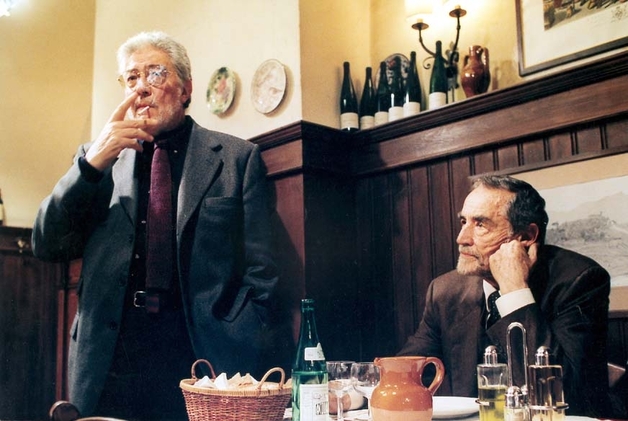Ettore Scola, the acclaimed Italian director and screenwriter, left an indelible mark on world cinema with his poignant storytelling, sharp wit, and profound insights into the human condition. Throughout his illustrious career, Scola crafted a diverse body of work that captured the essence of Italian society while transcending cultural boundaries. From intimate family dramas to sweeping historical epics, Scola’s films resonate with audiences for their authenticity, emotional depth, and universal themes.
One of Scola’s masterpieces, “La Famiglia” (The Family), stands as a testament to his ability to depict the complexities of familial relationships with sensitivity and nuance. Released in 1987, the film follows the travails of the Valeri family over several decades, offering a panoramic view of Italian life from the post-war years to the economic boom of the 1960s. Through the lens of one family’s joys and sorrows, Scola explores themes of love, loss, and resilience, creating a rich tapestry of human experience that resonates across generations.
In “Passione d’amore” (Passion of Love), Scola ventures into the realm of romantic melodrama with breathtaking results. Released in 1981 and based on the novel by Iginio Ugo Tarchetti, the film tells the tragic love story of a young officer, Giorgio, and his obsessive infatuation with the enigmatic Clara. Scola’s exquisite direction and the mesmerizing performances of his leads, including Bernard Giraudeau and Valeria D’Obici, imbue the film with an intensity and poignancy that lingers long after the final frame.
Scola’s penchant for blending humor with social commentary is evident in “Riusciranno i nostri eroi a ritrovare l’amico misteriosamente scomparso in Africa” (Will Our Heroes Be Able to Find Their Friend Who Has Mysteriously Disappeared in Africa?). Released in 1968, amidst the backdrop of social upheaval and political turmoil, the film is a satirical exploration of Italy’s post-war identity crisis. As a group of bumbling friends embarks on a farcical journey to locate their missing comrade, Scola exposes the absurdities of contemporary Italian society with biting wit and irreverent humor.
Beyond these notable works, Scola’s filmography is replete with gems that showcase his versatility as a storyteller and his keen insight into the human condition. Whether delving into the intricacies of Italian politics, examining the complexities of love and desire, or offering poignant reflections on the passage of time, Scola’s films continue to captivate audiences with their timeless relevance and emotional resonance.
In the pantheon of Italian cinema, Ettore Scola occupies a revered place as a visionary director whose films transcend cultural and temporal boundaries. His rich legacy endures through the enduring power of his storytelling, reminding us of the profound impact that cinema can have in illuminating the human experience.






